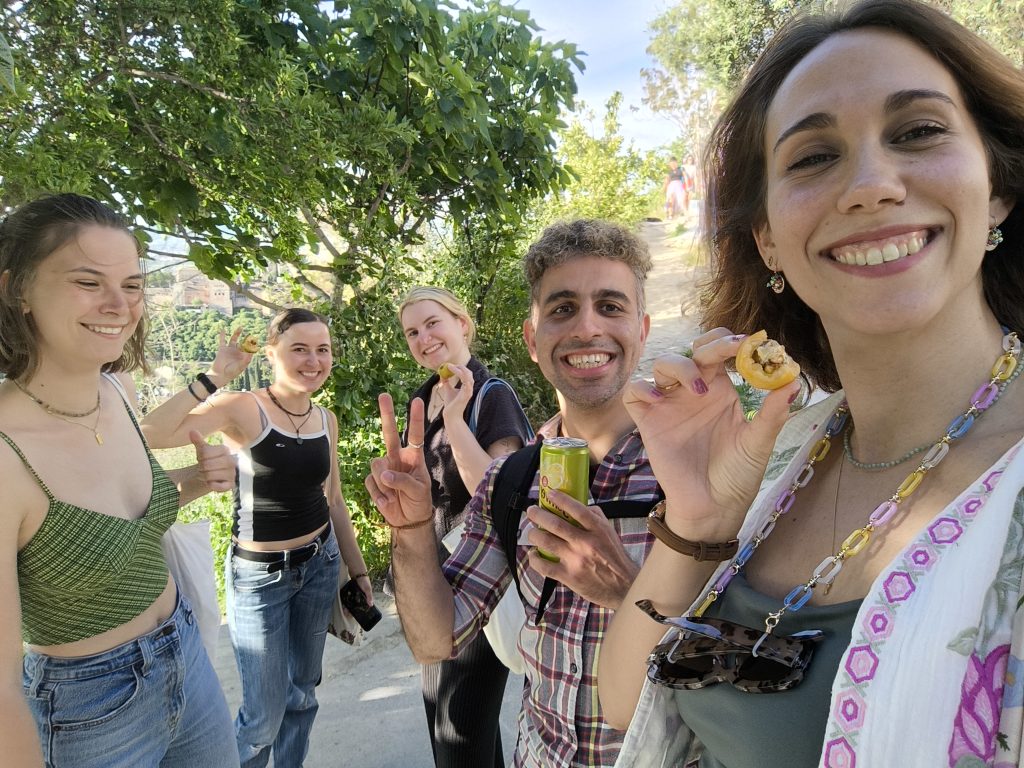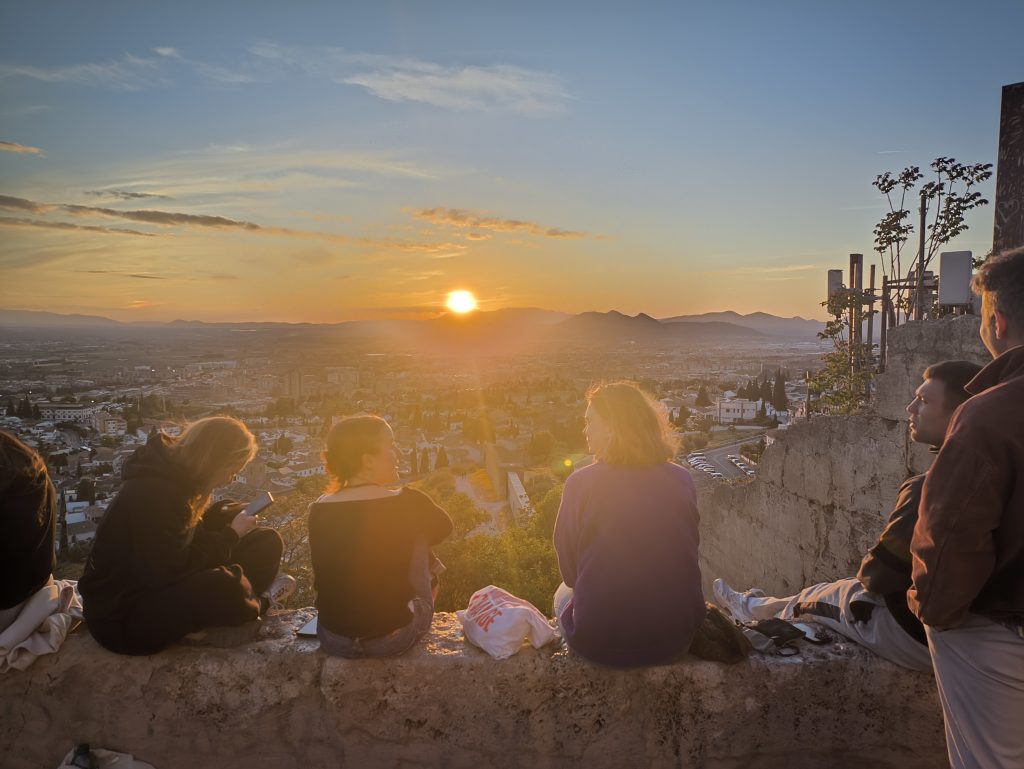5 Leipzig students visit Granada: Hybrid language learning as preparation for academic exchange
|
22 May 2025|
22 May 2025What’s the best way to prepare for a study abroad? Five students from Leipzig University tried out one way that might just be the answer: a blended learning course in the local academic language. Through a combination of virtual exchanges with Spanish tandem partners and a week-long stay at the University of Granada, the students immersed themselves in the local academic system and got a feeling for what it will be like to study in Granada. In this article, course leader Alba Delgado describes why this pilot programme was more than just a language course and what potential it has for the future.
Each semester, university language centres prepare thousands of students for the language and cultures they have chosen. The reasons students have for joining these courses are diverse, but the main objective remains the same: to equip them with the skills they need to thrive in academic and professional environments in other countries and other languages. In the classroom, we strive to simulate real communicative situations as closely as possible. However, the diversity of each student’s background – different fields of study, host universities and lengths of stay – means that we can only cover the essentials. And then at some point, the students set out on their exchange programmes and end up diving headfirst into the experience.
Although this cultural immersion brings many positive effects, it is also crucial for students to feel prepared, to understand what their stay will look like and to know what will be expected of them in specific academic contexts. In the Spanish Department of the Language Centre at Leipzig University, we therefore decided to create a blended-learning programme to help students become familiar with academic discourse in Spanish before their study abroad.
In collaboration with the Modern Language Centre (CLM) and the Office for Linguistic Policy and Internationalisation at the University of Granada, we launched the pilot programme “Spanish for academic purposes: Understanding and constructing academic discourse at the university level”. This innovative hybrid mobility programme brought together five German students and five Spanish students in a unique experience of academic and language immersion. It was made possible within the framework of the Arqus European University Alliance and with funding from the DAAD mobility programme.
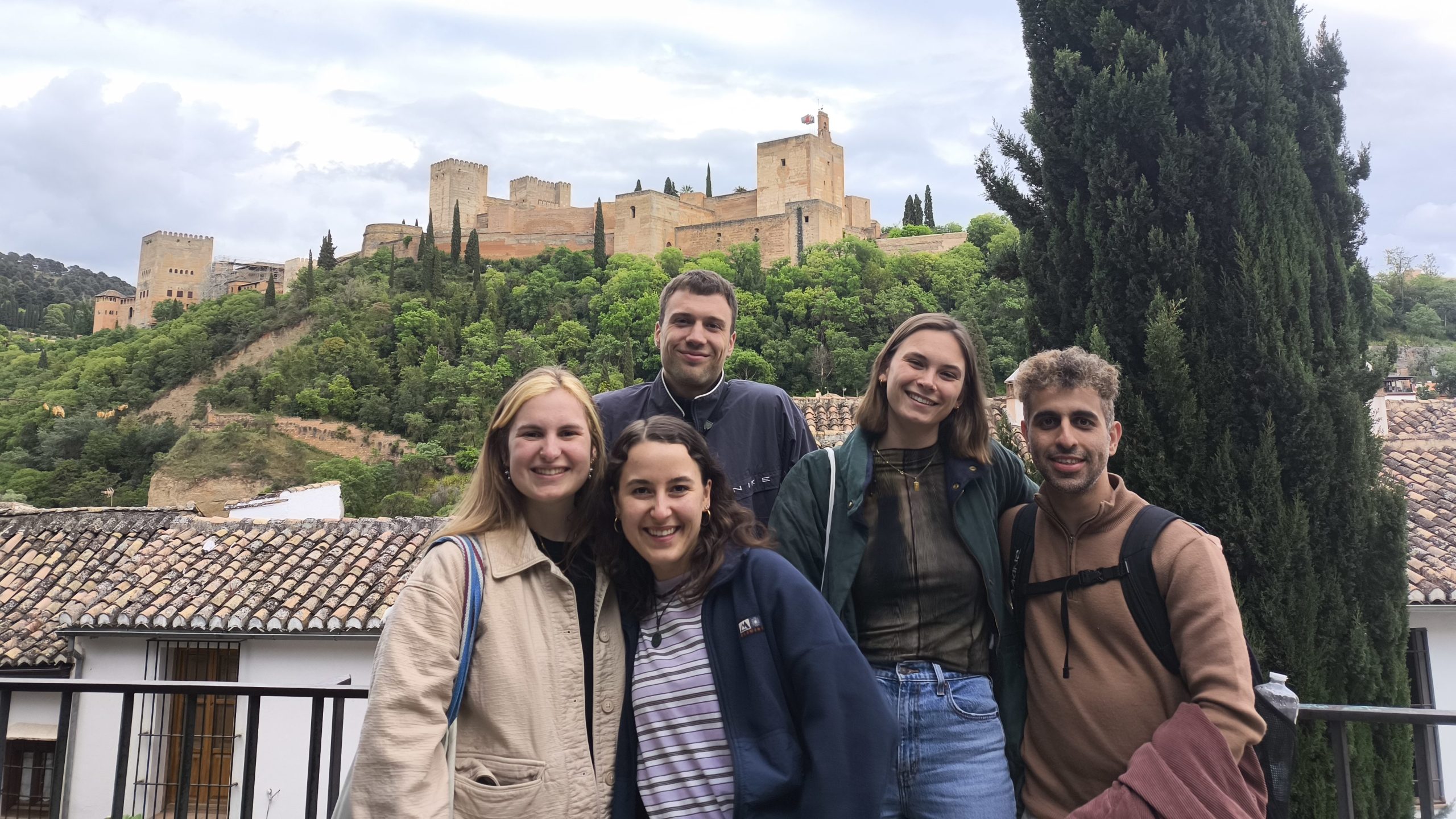
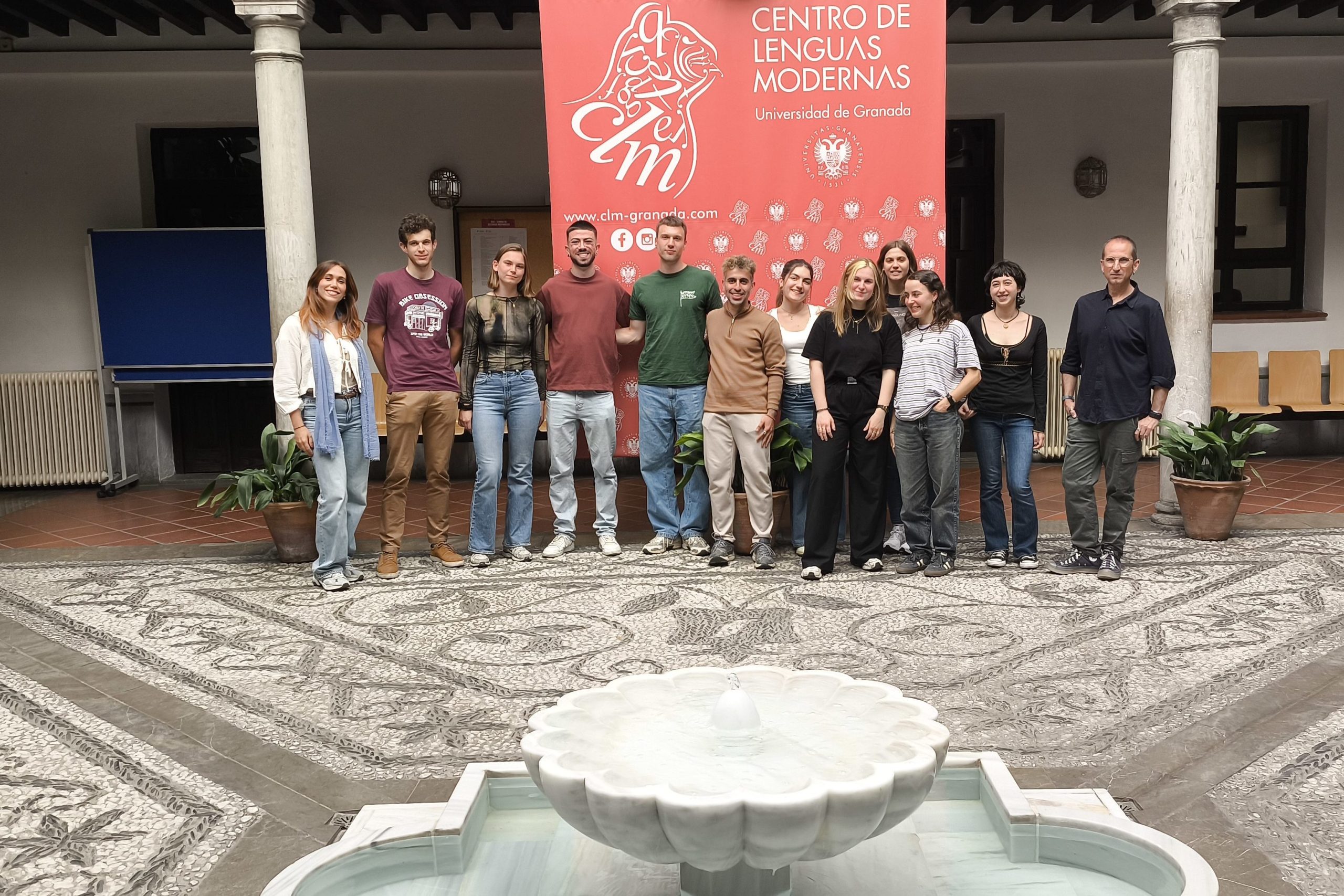
The main objective of the programme is to promote reflection, understanding and production of academic discourse in Spanish as an additional language. For this purpose, it was divided into two phases: an initial virtual phase focused on genre-based learning and a second in-person phase of immersion at the University of Granada.
During the first phase, students worked independently, analysing academic genres and familiarising themselves with the rhetorical structures and conventions typical of the academic field. And through tandem sessions with their Spanish peers, the students developed their critical reflection and language skills in a digital and multilingual environment.
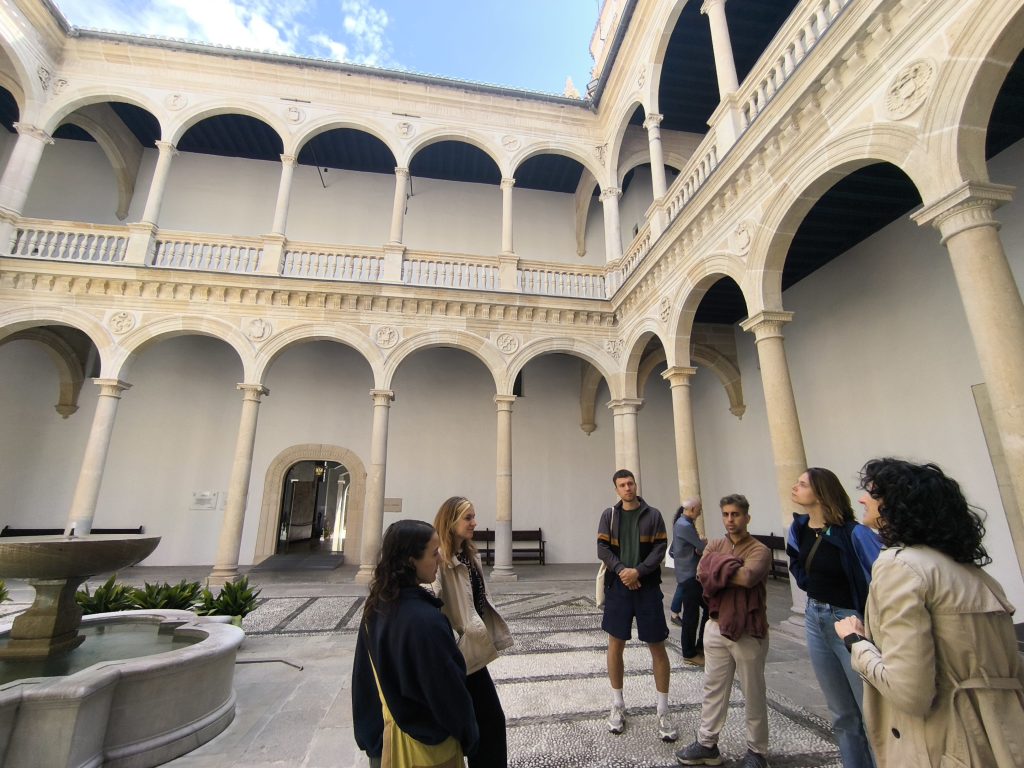
The in-person phase at the University of Granada allowed the German students to take part in the daily life of several faculties and attend classes as auditors, where they observed academic discourse in specific contexts. Both administrative staff and professors at the University of Granada welcomed the students warmly, helping integrate them into the classes and even offering extracurricular activities such as academic excursions. For this reason, we would like to express our gratitude to everyone involved, as their collaboration was essential for the success of the programme.
This experience of academic immersion was complemented by activities organised for both the German and Spanish students, including language exchange sessions, sports events and even culinary gatherings. We also had the opportunity to take a guided tour of the Royal Hospital and its library, where we learned more about the history and heritage of the university and its rectorate.
As the programme concludes, we can affirm that it has not only helped the students to develop their academic skills in Spanish but has also helped to strengthen ties between European universities and open new opportunities for collaboration. The results of this first edition will allow us to adjust and optimise the programme for future editions. And ultimately, we aim to establish it as a sustainable model that can also be implemented in additional languages.
